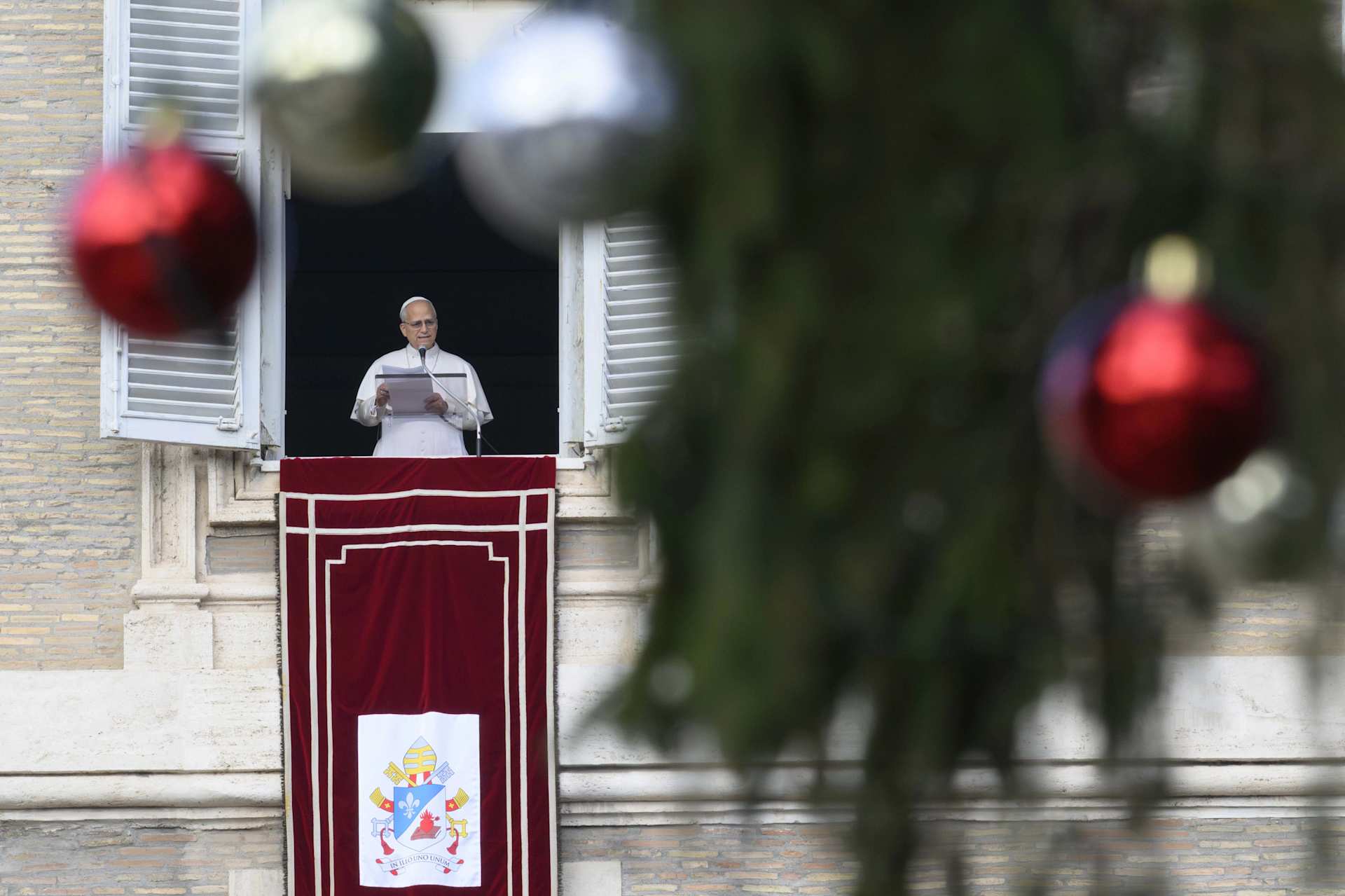Giuliano da Empoli, the modern Machiavelli
Giuliano da Empoli,
the modern Machiavelli
An Italian-Swiss writer specializing in top-level power games and autocrats has become essential reading for Europe’s political elite, particularly Emmanuel Macron.
By GIORGIO LEALI
in Paris

There’s an outsider among the small group of people following French President Emmanuel Macron in the narrow corridors of the United Nations and the lavish meeting rooms of the Riyadh Ritz Carlton. He is neither a bodyguard, nor an aide, nor a diplomat. He thinks of himself simply as a writer.
His name is Giuliano da Empoli, and in recent years his works have become some of the most fashionable reading for those in Europe’s halls of power.
Just like notorious Florentine diplomat Niccolò Machiavelli, author of “The Prince,” da Empoli specializes in diagnosing the strongmen of his age. While for Machiavelli that meant studying the secrets of Cesare Borgia’s success, da Empoli has been exploring the world of Donald Trump, Vladimir Putin and Saudi Prince Mohammed bin Salman.
His last two books focused on tyrants and autocrats, and presidents and ministers across Europe have gobbled them up in the hopes of surviving the increasingly dog-eat-dog world of geopolitics.
Macron is on first-name terms with da Empoli and quotes him in his speeches. Danish Prime Minister Mette Frederiksen — who has spent much of this year sparring with Trump over his threats to Greenland — has a direct line to the phlegmatic Italian-Swiss national.
In an elegant parlor overlooking the garden at the Parisian headquarters of his publisher Gallimard, da Empoli admitted to POLITICO that, like Machiavelli, he likes to be “the one who is in the room, in the place where decisions are taken and things happen, but who stays a bit on the side.”

While Machiavelli tailored “The Prince” as a guidebook on Realpolitik for Florentine statesman Lorenzo de’ Medici, da Empoli also views himself as providing advice to the leaders of his day, in return for access to top-level subject matter.
“For me, it is a way to get material to feed my writing. For them, it is also a way to have a different perspective from that of professional advisers or the other people they speak to,” he said.
Machiavelli and da Empoli admittedly had different reasons for picking up a pen. The Florentine wrote his masterpiece to try to win back favor and a political role with the Medici family, on whose orders he had been tortured. Da Empoli insisted he was happier as a writer, staying on the sidelines. Ironically enough, he said he was turned off by the cut-throat nature of politics he encountered in his earlier days.
Brussels is no predator
In France, da Empoli mania is in full swing.
Companies, universities, lobby groups and think tanks are bending over backward to get him to speak at their events.
“He is a big headliner. Clients want us to book him as a guest for their annual events and seminars, especially given the current geopolitical uncertainties,” said a Paris-based strategy consultant who was granted anonymity to protect their relationship with clients. “But it is hard to get him, as his agenda is full for months.”
Macron brought him to the United Nations General Assembly in September last year, followed by a state visit to Canada. Last December he joined the French president on an official visit to Saudi Arabia, where he filled his notebook with ideas for his latest book — which the French president quoted in a speech to the army this summer.
That book, “The Hour of the Predator,” was published in French in the spring and comes out in English next week. It explores the universe of Trump, Putin, Crown Prince Mohammed and Salvadorean President Nayib Bukele — the self-styled “world’s coolest dictator.” (There is not a single mention in this non-fiction work of the European Union’s institutions or their leaders — whom da Empoli considers to be the exact opposite of predators.)

Da Empoli argues these leaders owe much of their success to their ability to surprise adversaries with rash and sometimes ruthless decisions, like the killing and dismemberment of journalist Jamal Khashoggi.
The Saudi crown prince, da Empoli writes, is the type of leader who would have thrived in Machiavelli’s times. Da Empoli described him as the “reincarnation” of Italian cardinal Cesare Borgia — who, as Machiavelli wrote, killed his enemies after inviting them for dinner.
“These Borgias are characters who move in a world without rules — or break the rules, producing political miracles,” da Empoli said.
It’s a world in which rule-bound Brussels struggles to make the grade.
“If there’s something that brings together Trump, Putin and tech lords … it’s that they all attack almost daily Brussels, its rules, the European integration process,” he said. “Having written a book entirely about predators, it is normal, natural, that Brussels doesn’t feature in it.”
Machiavelli’s neighbor
Politics has been part of da Empoli’s life since childhood.
His father, Antonio, was a top economist who advised socialist Prime Minister Bettino Craxi. In 1986 the elder da Empoli survived an attack by far-left terrorists when Giuliano was 12. That’s when he first learned that politics comes with an inevitable dose of violence — a theme he regularly returns to in his books.
“Politics is the activity that must prevent us from killing each other, but for this very reason it also concentrates a great deal of violence within itself,” he said.
Da Empoli had become a young progressive by his early 20s, but was academically intrigued by the success of center-right tycoon Silvio Berlusconi among young voters, who skewed left in the 1990s.
“It seemed important to me to investigate the reasons of the success of the adversary — which, after all, is what I continued doing until today,” he said.
So the young writer published his first book on the struggles of young Italians, in which he criticized the Italian left for seeking short-term consensus to the detriment of future generations.
The book earned him lunch invitations and the friendship of former Italian President Francesco Cossiga, an eccentric Christian Democrat. And his ideas lined up neatly with the policies later championed by Matteo Renzi, whom da Empoli ended up working for.

Da Empoli started as Renzi’s adviser when the future prime minister was mayor of Florence. As Renzi’s deputy for culture, da Empoli’s office in the Palazzo Vecchio was next to the one Machiavelli had occupied when he was secretary of the Florentine Republic. He once said he even felt the famed author’s spirit floating there.
During his years beside Renzi in Florence, da Empoli came to the conclusion that skilled politicians take too much pleasure from violence and betrayal, and that this wasn’t what he was looking for.
So da Empoli progressively left front-line politics. He founded a think tank called Volta in 2016, published articles and wrote books on the rise of populist movements — including Italy’s 5Star Movement — and the role of the spin doctors behind them.
Yet da Empoli continued to orbit the political world, developing a network of influential contacts from Macron to former U.S. Secretary of State Henry Kissinger, never quite cutting the cord from politics completely.
After years of shuttling between Italy and the French capital, in 2019 da Empoli decamped for Paris, where he was born, drawn by the country’s “intimate connection between literature and politics.” The French capital remains a place where authors and philosophers still enjoy fame on the level of rock stars and actors, and where politicians regularly try their hand at writing fiction. Macron, as a teenager, even dreamed of becoming an author.
Stuck in a silent, locked-down Paris during the coronavirus pandemic, da Empoli wrote “The Wizard of the Kremlin,” his first work of fiction. The book tells the story of an imaginary Russian spin doctor inspired by former Vladimir Putin adviser Vladislav Surkov.
He chose to write a novel because he thought a “subjective and perhaps less-rational” work would grant him greater creative freedom to explore the themes he was interested in.

It hit bookshelves on April 2022, a few weeks after Russia launched its full-scale invasion of Ukraine, and quickly became a bestseller. Readers hungry to better understand Putin and the oligarchs in his inner circle lapped it up.
“The book gave a form of collective intelligence to events that in themselves seemed just brutal and violent,” said former French Culture Minister Aurélie Filippetti, a writer herself. “I don’t know a single person in the [French] political world who has not read his books.”
Da Empoli’s star is now brighter than it has ever been, even if the movie adaptation starring Jude Law (who plays Putin), Paul Dano and Alicia Vikander premiered to mixed reviews at the Venice Film Festival in August.
The author’s admirers say his success has much to do with his capacity to make complex topics easily digestible, often by skillfully mixing refined historical anecdotes with references to pop culture and TV series.
Like Machiavelli, da Empoli is not so interested in the morality of his subjects, but is rather focused on understanding what’s going on inside the minds of characters like Putin or Trump. And that’s a point he particularly cares about.
“The common thread of my books is to try to enter in the head of the villains, of the adversary,” he adds. “It is more interesting than to simply stigmatize them.”



















:quality(85):upscale()/2023/09/18/918/n/1922398/a1136b676508baddc752f5.20098216_.jpg)
:quality(85):upscale()/2025/10/09/670/n/1922283/00b944c868e7cf4f7b79b3.95741067_.jpg)
:quality(85):upscale()/2025/10/15/765/n/1922398/29c37a6e68efd84bb02f35.49541188_.jpg)
:quality(85):upscale()/2025/09/09/891/n/1922283/7222624268c08ccba1c9a3.01436482_.png)
















